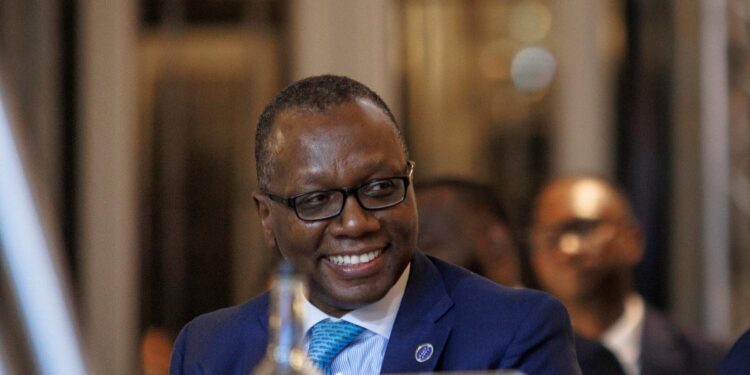ACCRA, GHANA
The African continent has the potential to unlock an estimated $133 billion in annual economic value if it decisively tackles the existing $80 billion trade finance gap stifling cross-border commerce and industrial growth. This was the bold assertion made by the Chief Executive Officer of Ghana International Bank (GHIB), Mr. Dean Adansi, during a high-level financial forum closely monitored by Pan-African Trade Desk.
According to the banking executive, Africa’s vast commercial potential is not being matched by access to critical financing tools, particularly among small and medium-sized enterprises (SMEs) that form the backbone of intra-African trade. The current trade finance shortfall, he argued, is leaving billions of dollars in untapped value on the table, limiting the continent’s ability to fully benefit from initiatives like the African Continental Free Trade Area (AfCFTA).
Speaking on the sidelines of a regional finance summit in Accra, Mr. Adansi stressed that trade finance is not merely a banking issue, but a key lever for inclusive development, manufacturing growth, and job creation. He explained that bridging the financing gap would dramatically boost transaction volumes, support local value chains, and empower exporters to scale their operations with confidence.
Industry figures suggest that the $80 billion gap largely stems from the limited capacity of African banks to underwrite trade-related risks, coupled with a lack of harmonised credit standards and regulatory bottlenecks that hinder fluid financial flows. This leaves many businesses, especially in agriculture, manufacturing, and logistics, unable to access the capital needed to move goods efficiently across borders.
However, with coordinated efforts among central banks, regional financial institutions, and international development partners, the GHIB boss believes the tide can turn. He called on African policymakers to build strong credit enhancement schemes, improve digital infrastructure in banking, and prioritise domestic capital mobilisation as part of a continent-wide trade financing strategy.
With AfCFTA already operational and aimed at creating the largest free trade zone in the world, stakeholders are increasingly urging governments and banks to act swiftly in addressing financing gaps. Mr. Adansi pointed out that failure to do so could mean watching global competitors seize Africa’s own markets due to internal constraints.
As financial leaders and trade officials deliberate on next steps, the $133 billion projection is being seen as both a challenge and a call to action, one that could redefine Africa’s economic landscape if met with the right mix of political will, innovation, and investment readiness.

